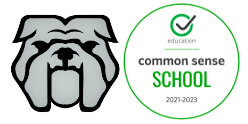Why Computer Science Link to this section
-
Expertise in computing enables you to solve complex, challenging problems.
-
Computing jobs are here to stay, regardless of where you are located.
-
Computer science-related career salaries are more than TWICE the national average.
-
Computing jobs are growing THREE times faster than the number of computer science graduates.
-
Information and communication technology is the FASTEST growing job sector in the Bay Area.
-
Computing enables you to make a POSITIVE difference in the world.
-
The importance of creative problem solving for future success:
Prioritizing higher-order skills like open-ended creativity, critical thinking, creative problem-solving, and communication is critical to prepare students for future careers. While skills like communication, creativity, and collaboration are highly sought after by hiring managers at anywhere from 40-71%, only a small fraction of applicants are including these skills on their resumes or in interview conversations.
Source: Google for Education
- AR/VR developer jobs grew by 1400% in just over one year, from 2018 to 2019.
- Unity: Apps developed by Unity creators are being downloaded by 3 billion times per month on average.
Source: Unity
- Developer jobs grew 39% over the past two years with rising changes throughout the Covid-19 pandemic.

Source: DICE TECH JOB REPORT The Early Impact of COVID-19 on Tech Hiring Issue #2 Q1 2020 Link to this section


Source: DICE TECH JOB REPORT Tech Roles, Employers and Hubs on the Rise Issue #6 Q2 2021 Tech Job Report Link to this section
What will you do? Link to this section
Objectives of the CS Pathway:
-
Students learn and develop computer science concepts and skill building through inquiry and project-based learning.
-
Students work collaboratively on projects and labs, forming small learning communities in order to gain alliances and work as if they are in industry settings.
-
College and career skills are built into the courses to prepare students for higher education and future work as computing professionals.
-
Students develop an understanding of how technologies such as the Internet, Artificial Intelligence, Virtual Reality was initially formed and how those technologies developed through time. Students discuss and implement an understanding that positive advances in humankind and societies around the world for the good of all can be made through technology developments and innovation.
-
SIM in Computer Science Pathway at Wallenberg
SIM stands for Socially Inclusive Media
The nature and purpose of games will be identified and explored throughout our curriculum alignment. Social justice is the conceptualized creation of a society in which each individual matters, their rights are recognized and protected, and decisions are made in ways that are fair and honest. The mission of the SIM Academy at Wallenberg is to face and process the effects of racism, gender inequalities, class and privilege in tech & media creation. SIM aims to provide students with necessary technology skills to leverage essential job skills in alignment with current trends with immediate and long-term benefits across technology sectors. SIM aims to explore the ways in which stories in game development can explore alternative themes addressing current events, providing an outlet for all voices to be heard while exploring project themes beyond acquisition of wealth, power, and reputation and aimed at guiding and supporting communities with compassion, social responsibility, activism, and inclusivity.


Intro to Computer Science Link to this section
The course takes a wide lens on computer science by covering topics such as programming languages such as Javascript, Python, physical computing, HTML/CSS, and data. The course inspires students as they build their own websites, apps, games, and physical computing devices. Students create a digital portfolio of their work throughout the year.
Students will also read excerpts from other industry related articles while analyzing and discussing current trends and research in the field of Computer Science and Technology.
Topics covered:
Problem Solving
Web Development
Animations and Games
The Design Process
Data and Society
Physical Computing
Computer Science Principles (AP) Link to this section
Computer Science Principles introduces students to the foundational concepts of computer science and challenges them to explore how computing and technology can impact the world. More than a traditional introduction to programming, it is a rigorous, engaging, and approachable course that explores many of the foundational ideas of computing so all students understand how these concepts are transforming the world we live in. The course is focused on social justice and technology. Students create and evaluate a digital portfolio of their work throughout the year and create resumes and CV’s to share with industry experts. The course has an end-of-year examination for the College Board which requires extensive in-house (timing is done at school and recorded) hours of research, written examination, and project-based examination. See: https://apcentral.collegeboard.org/courses/ap-computer-science-principles
Students will read and analyze excerpts from: Blown to Bits: Your Life, Liberty, and Happiness After the Digital Explosion 1st Edition and 2nd Editions by Hal Abelson. Students will also read excerpts from other industry related articles while analyzing and discussing current trends and research in the field of Computer Science and Technology.
“Blown to Bits is a timely, important, and very readable take on how information is produced and consumed today, and more important, on the approaching sea change in the way that we as a society deal with the consequences.” - Craig Silverstein, Director of Technology, Google, Inc.
See: http://www.bitsbook.com
Computer Science Principles (AP) Course topics:
The Internet
Digital Information
Programming
Big Data and Privacy
Explore - AP Performance Task Prep
Building Apps
Create - AP Performance Task Prep
Post AP - Data Tools
Contact Info Link to this section
Lead Instructor:
Ms. Kath Cuéllar Burns
DLeaf Digital Curriculum Facilitator, BIPOC Advisory
SIM: Socially Inclusive Media Tech Equity and Excellence
Club Mentor: Girls Who Code, Bulldog Bulletin
Email: burnsk@sfusd.edu



This page was last updated on May 11, 2022

